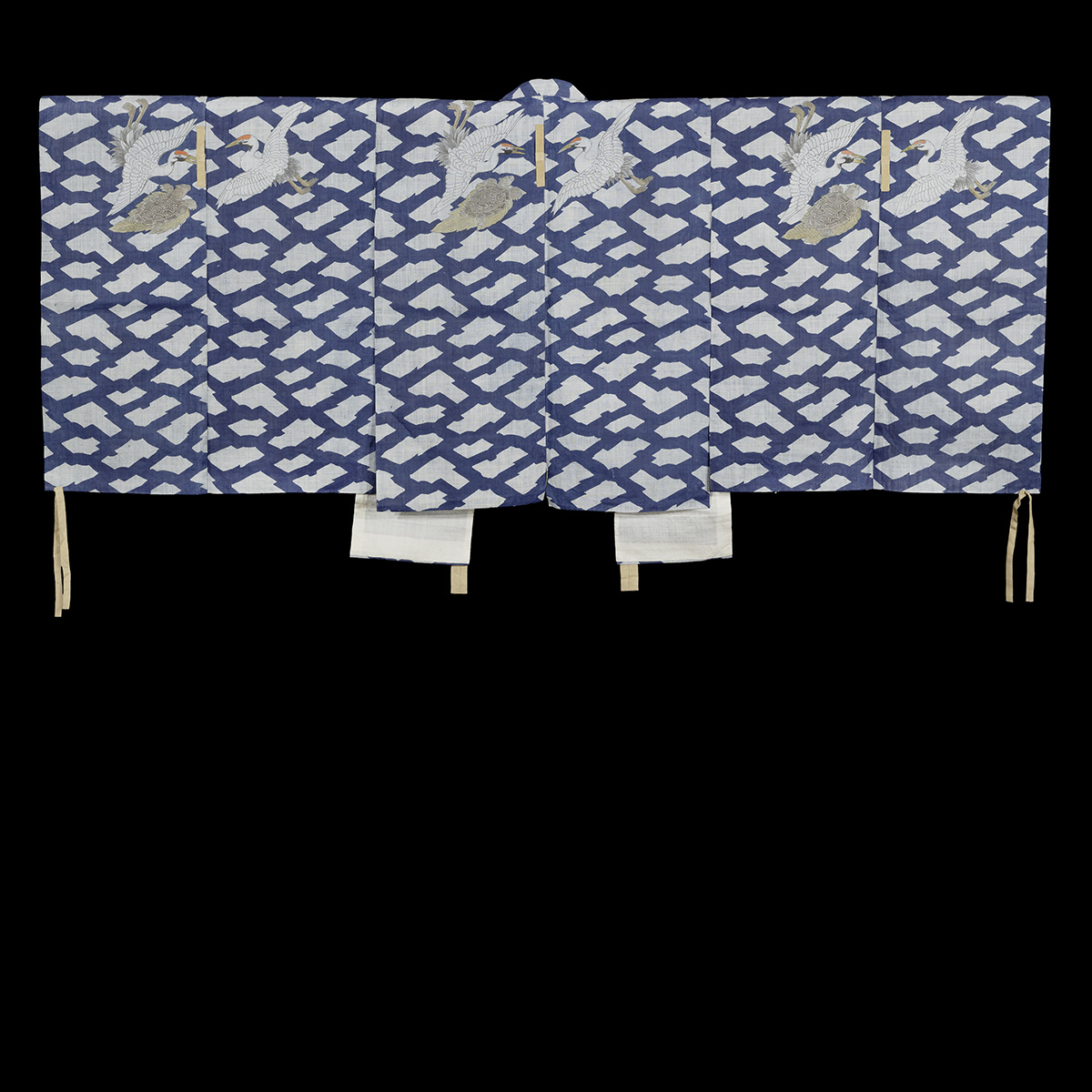Kawabaori
Textile


- Contact Us
-
Material
Leather with inden smoking technique of dyeing
-
Size
84 (h) x 123 cm
-
Period
Japan, Edo period, 19th Century
Description
KAWABAORI
Reversible leather (deerskin or water buffalo leather imported from India) coats were worn by high- ranking Japanese firemen, merchants and carpenters in the Edo period.
These coats called kawabaori were made of thick smoked leather (fusube-gawa).
The design was made with a particular smoking process (inden) which seems to have been introduced to Japan from India in the Momoyama Period (1568-1603).
This technique allowed to impart color the leather and to render it waterproof. Before the smoking dyeing process, rice paste was applied with a stencil onto the leather to create a pattern reserved in white on the brown smoked leather.



